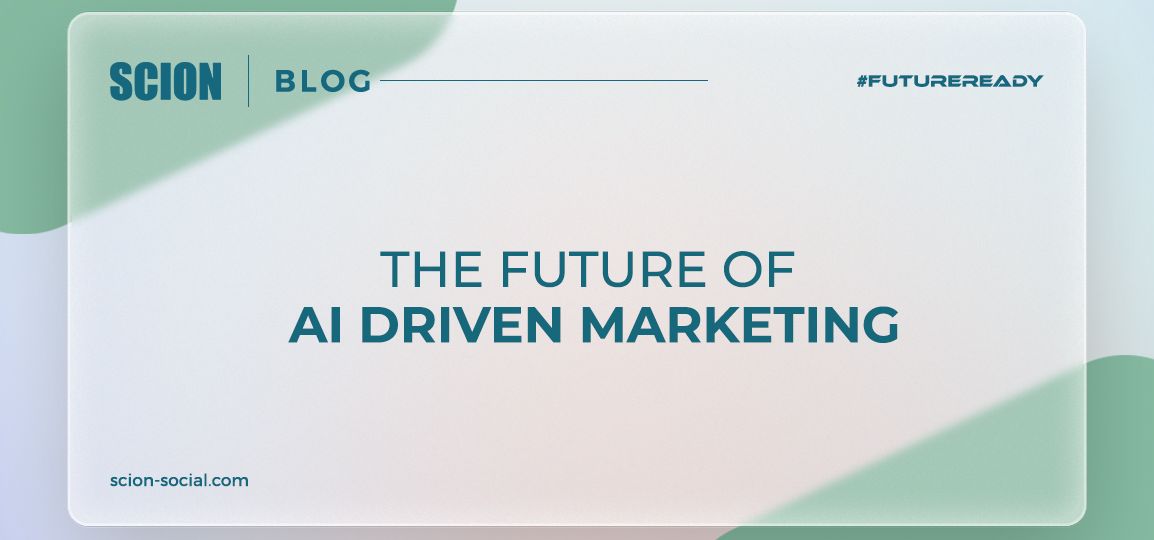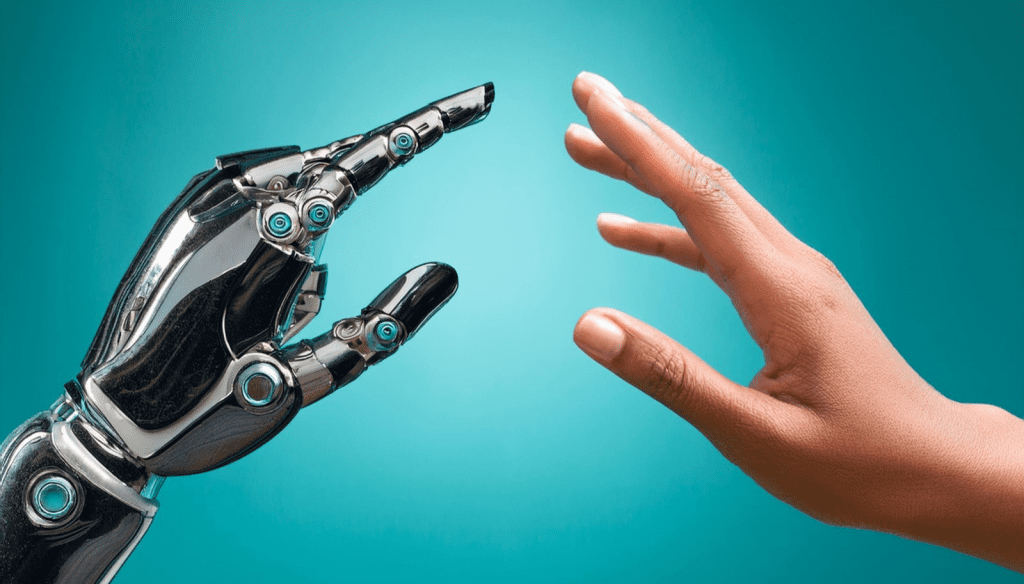
Last Updated : Sep 12, 2024
The marketing landscape has undergone a significant transformation in recent years, and AI is at the center of it all.
In this blog, we’ll delve into key trends, the benefits and challenges, and how you can leverage AI for different areas of marketing.
What is AI-Driven Marketing?
AI-driven marketing is the use of artificial intelligence (AI) technologies to analyze data, automate tasks, and personalize marketing efforts. It involves machine learning algorithms and other AI techniques to understand customer behavior, predict outcomes, and optimize marketing campaigns.
Think of it as a personal marketing assistant that understands your customers’ needs, predicts their behavior, and creates personalized campaigns that resonate with them.
Key Areas Where AI is Used in Marketing
AI is becoming an indispensable tool for businesses. Let’s explore the key areas where AI is making a significant impact on marketing.
Data Analysis: AI quickly processes and analyzes large amounts of data to identify patterns and trends that humans might miss.
Personalization: AI creates highly personalized marketing messages based on individual customer preferences and behaviors.
Automation: AI can automate repetitive tasks, such as social media posting and email campaigns, freeing up marketers to focus on more strategic work.
Predictive Analysis: AI can be used to predict customer behavior and forecast the outcomes of marketing campaigns.
Customer Service: AI-powered chatbots can provide 24/7 customer support and answer common questions.
Marketers can gain valuable insights into their customers’ behavioral patterns, improve the effectiveness of their campaigns, and drive better business results by leveraging AI.
The Current State of AI in Marketing
AI is already making waves in marketing. From chatbots that provide instant customer support to personalized email campaigns that drive conversions, AI is becoming an essential tool for businesses of all sizes. However, the potential of AI in marketing is far from being fully realized.
AI is poised to revolutionize marketing by enabling more efficient, effective, and personalized campaigns. As technology continues to advance, we can expect to see even more innovative applications of AI in the marketing space.
Widespread adoption: According to The Influencer Marketing Hub, 69.1% of marketers are using AI in their strategies.
Increased investment: Spending on AI marketing solutions is expected to reach billions of dollars in the coming years.
Let’s look at how artificial intelligence will change the future of marketing.
Key Trends in AI-Driven Marketing
With the rise of AI, even those new to the marketing field are creating top-notch content. To stay ahead, it’s essential to understand current trends, use AI tools to automate processes, and produce professional, quality work.
Here are some key trends shaping AI’s future in marketing:
- Conversational AI: Chatbots and virtual assistants powered by AI are becoming increasingly sophisticated, providing 24/7 customer support and personalized recommendations.
- Automated Content Creation: Tools like ChatGPT can generate content at scale, saving time and resources.
- Social Listening and Hyper-personalized Content: AI-powered social listening can analyze customer data so that brands can tailor their messaging, create personalized content, customize their overall experience, improving engagement and conversions.
Benefits and Challenges of AI-Driven Marketing
If you’re wondering what’s in it for you and your business, you’d be pleased to know that AI can boost your processes in so many ways. To navigate the rapidly evolving marketing landscape, businesses must grasp the potential benefits and challenges of AI to make informed decisions and stay ahead of the competition.
Benefits
- Increased efficiency: AI can automate repetitive tasks, freeing up marketers to focus on more strategic work.
- Enhanced decision-making: AI can provide valuable insights to help marketers make data-driven decisions.
- Enhanced customer insights and experiences: AI can analyze customer data to uncover valuable insights and inform marketing decisions. This helps deliver personalized experiences that delight customers.
- Cost saving: By automating data analysis and personalized campaigns, AI helps businesses optimize their marketing budgets and achieve a higher return on investment.
Challenges
- Data privacy and quality concerns: AI relies on large amounts of data, which raises concerns about data privacy and security.
- Ethical considerations: The use of AI in marketing raises ethical concerns, such as transparency and bias. Ensuring accuracy and completeness is crucial.
- Human oversight: While AI can automate many tasks, human oversight is still necessary to ensure that marketing efforts are aligned with business goals and values.
- Lack of required skillset: The scarcity of professionals with specialized AI skills can hinder the effective implementation and utilization of AI technologies in marketing strategies.
How Does AI Impact Different Areas of Marketing?
1. Content Creation
AI has made quite a significant stride in content generation. Tools like GPT-3 can produce articles, blog posts, and even creative copy that is often indistinguishable from human-written content. This not only saves marketers time but also enables them to create content at scale.
Top tools for content creation:
- Jasper.ai: A powerful AI writing assistant that can generate various types of content, including blog posts, social media captions, and marketing copy.
- Copy.ai: Copy.ai is a personal favorite. It is another AI-powered writing tool AI-powered writing tool that offers a wide range of templates and features for creating high-quality content.
- Canva: While primarily a graphic design tool, Canva also includes AI-powered features for creating social media posts, presentations, and other visual content.
According to a study by Gartner, by 2025, more than 30% of all new content will be generated by AI.
2. Customer Expectations
As already mentioned, consumers today expect personalized experiences. With the help of AI-powered recommendation systems, you can easily analyze customer data to suggest products or services that align with their preferences. This level of personalization can significantly improve customer satisfaction and loyalty.
Here are the top 3 tools for understanding customer behavior:
- Google Analytics: A free and comprehensive web analytics tool that provides insights into website traffic, user behavior, and conversion rates.
- Mixpanel: A product analytics tool that helps businesses understand how users interact with their products and identify areas for improvement.
- Adobe Analytics: A powerful enterprise-level analytics tool that offers advanced features for analyzing customer data and tracking marketing performance.
A survey by McKinsey found that 71% of consumers expect companies to provide personalized experiences.
3. SERP Algorithms
Search engine algorithms have become increasingly sophisticated, relying heavily on AI to understand search intent and deliver relevant results. AI-powered natural language processing (NLP) enables search engines to better comprehend the nuances of human language, leading to more accurate search results.
Google’s BERT algorithm, an AI-based model, has significantly improved search results by helping users better understand context and meaning.
4. SEO and Content Strategy
AI has proven to be a valuable tool for SEO. AI-powered tools can help marketers identify relevant keywords, analyze competitors, and optimize content for search engines. Additionally, AI can track website performance and provide insights into user behavior, allowing marketers to make data-driven decisions.
The best tools you can use to boost your SEO and content strategy are:
- Ahrefs: A comprehensive SEO toolset that includes features for keyword research, backlink analysis, and competitor analysis.
- SEMrush: Another popular SEO tool that offers a wide range of features, including keyword research, site audits, and content optimization.
- Yoast SEO: A WordPress plugin that helps optimize content for search engines, improving visibility and organic traffic.
A study by BrightEdge found that businesses that invest in AI-powered SEO see an average increase in organic search traffic of 20%.
5. Customer Service
AI-powered chatbots have become a staple in customer service. These chatbots can handle routine inquiries and provide instant responses, reducing customer wait times and improving satisfaction. AI can also analyze customer interactions to identify trends and improve customer service processes.
- Intercom: A customer messaging platform that allows businesses to communicate with customers in real time through chat, email, and in-app messaging.
- Zendesk: A comprehensive customer service platform that includes features for ticketing, knowledge base management, and live chat.
- Freshdesk: Another popular customer service platform that offers a wide range of features, including omnichannel support and AI-powered automation.
According to a report by Juniper Research, chatbots saved businesses $8 billion annually in 2024.
The Impact of AI on Job Roles
While AI may automate some tasks, it is unlikely to replace human marketers entirely. Instead, AI will augment the capabilities of marketers, allowing them to focus on more strategic and creative work.
To stay ahead of the curve, there are a few things to consider:
- Upskill and reskill: Continuously learn new skills, especially those related to AI, data science, and technology.
- Develop critical thinking and problem-solving abilities: AI can automate tasks, but it cannot replace human judgment and creativity.
- Build strong communication and interpersonal skills: Effective communication and collaboration will be essential in an AI-driven workplace.
- Be adaptable: The job market is constantly changing, and individuals need to be able to adapt to new technologies and trends.
Balancing AI and Human Touch
The future of AI in digital marketing lies in striking a balance between AI and human ingenuity. AI can handle repetitive tasks and provide data-driven insights, while humans offer creativity, empathy, and strategic thinking.
Whether you’re a marketing professional or an entrepreneur looking to adopt these technologies, staying up to date with the latest trends is essential to ensure you are efficient.
Need consultation on your marketing campaign? Book yourself in for a free consultation to get started!



